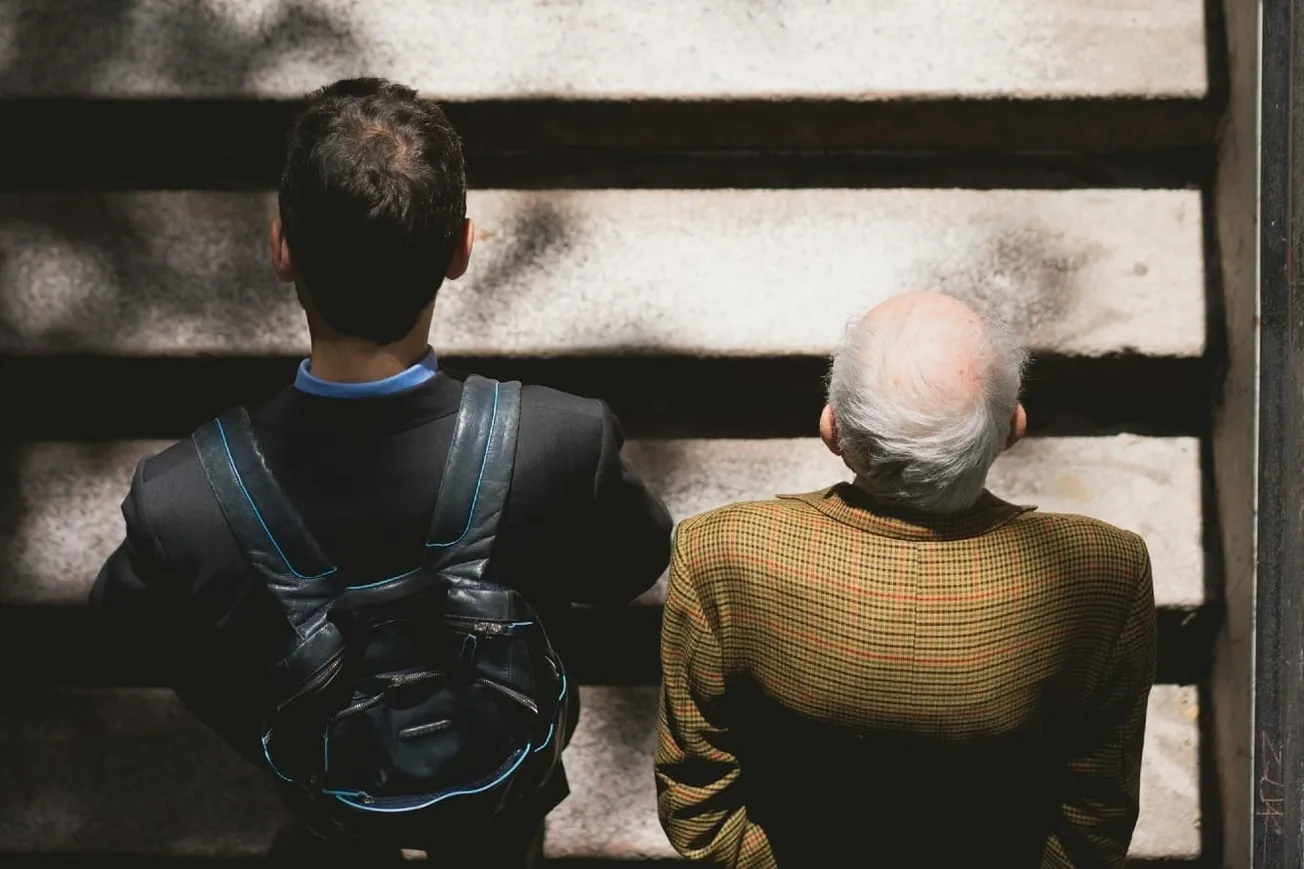By Ulrich Fromy, Mises Wire | January 06, 2025
An influential Austrian economist of the late 19th century—Eugen von Böhm-Bawerk—is best known as a great critic of the Marxist view of economics, which he helped to render rapidly obsolete by confronting it with its own contradictions (such as the problem of transformation and the challenge of reconciling Marx’s labor theory of value with the tendency towards an average rate of profit across industries). He also made a major contribution to our understanding of the importance of the role of time in the economy, and to our understanding of how the structure of capital works and is organized. A structure that encompasses most of society’s production system, from the extraction of raw materials to their transformation into consumer goods.
Finally, Böhm-Bawerk also helped to clarify the meaning of the concept of marginal utility, a fundamental principle of the Austrian School of economics developed by Carl Menger. Böhm-Bawerk added an essential notion that would later become known as opportunity cost.
In his book, The Positive Theory of Capital, Böhm-Bawerk uses the image of a pioneer with several sacks of grain to explain simply what marginal utility is, i.e., that the value of a good is based primarily on the utility that an additional unit of the same good can give to an individual. He gave an illustration of marginal utility using sacks of grain as an example,
A colonial farmer, whose log-hut stands by itself in the primeval forest, far away from the busy haunts of men, has just harvested five sacks of corn. These must serve him till the next autumn. Being a thrifty soul he lays his plans for the employment of these sacks over the year. One sack he absolutely requires for the sustenance of his life till the next harvest. A second he requires to supplement this bare living to the extent of keeping himself hale and vigorous. More corn than this, in the shape of bread and farinaceous food generally, he has no desire for. On the other hand, it would be very desirable to have some animal food, and he sets aside, therefore, a third sack to feed poultry. A fourth sack he destines for the making of coarse spirits. Suppose, now, that his various personal wants have been fully provided for by this apportionment of the four sacks, and that he cannot think of anything better to do with the fifth sack than feed a number of parrots, whose antics amuse him. Naturally these various methods of employing the corn are not equal in importance. If, to express this shortly in figures, we make out a scale of ten degrees of importance, our farmer will, naturally, give the highest figure 10 to the sustenance of his life; to the maintenance of his health he will give, say, the figure 8; then, going down the scale, he might give the figure 6 to the improvement of his fare by the addition of meat, the figure 4 to the enjoyment he gets from the liquor, and, finally, to the keeping of parrots, as expressing the least degree of importance, he will give the lowest possible figure 1. And now, putting ourselves in imagination at the standpoint of the farmer, we ask, What in these circumstances will be the importance, as regards his wellbeing, of one sack of corn?
This, as we know, will be most simply tested by inquiring, How much utility will he lose if a sack of corn gets lost?... Evidently our farmer would not be very wise if he thought of deducting the lost sack from his own consumption, and imperilled his health and life while using the corn as before to make brandy and feed parrots. On consideration we must see that only one course is conceivable: with the four sacks that remain our farmer will provide for the four most urgent groups of wants, and give up only the satisfaction of the last and least important, the marginal utility—in this case, the keeping of parrots.
What the Sacks of Grain Teach Us
This example is a perfect illustration of marginal utility. An initial unit of grain would be highly valued by the individual because it will enable him to feed himself, which is a vital and urgent need. An additional unit of grain will not have the same value because the primary need has already been satisfied, and it will also be consumed, not for survival, but to increase the pioneer’s physical well-being and strength. Each additional unit of the same good—though essential for survival—will have less value in the eyes of the individual.
What Böhm-Bawerk shows us, then, is that the individual, the pioneer, prioritizes the use of his grain according to what he subjectively considers to be his most urgent wants. So, for the pioneer, feeding parrots (i.e., entertainment) is less valuable than whiskey or diversifying his diet. The study of praxeology is all about human action and why people act.
This example also allows us to make another point: the study of human action refuses to render normative moral judgement on the choices made by individuals. Is the pioneer right to prefer whiskey to parrots? It does not matter. Asking that question takes us away from the essential question: why do people act?
It is also important to note that, as the pioneer’s stock of goods increases, his living conditions improve. The available goods in an economy, therefore, has a direct effect on people’s living conditions and prices of those goods. What this pioneer example and his sacks of grain shows us is that an abundance of goods allows new alternatives to emerge. Thanks to the increase in his goods, the farmer has new opportunities.
Losing a Sack and Opportunity Cost
When the pioneer loses one of his sacks of grain, he has to make a choice. It’s the opposite choice to the one he made before: instead of deciding how to allocate his new goods, he has to decide which alternative to sacrifice. Here we can look at the concept of opportunity cost, which Böhm-Bawerk also helped to develop. This represents the value of the alternatives foregone by choosing a particular option. In choosing to stop feeding the parrots in order to continue producing whiskey, the pioneer calculates which of the two alternatives would be a greater loss. For him, losing his whiskey is more costly than losing his parrots.
This calculation helps him to allocate his limited resources more efficiently. He takes into account all the costs associated with his future allocation decision, both explicit and implicit. As we said earlier, people act according to their subjective preferences, but this does not mean that he will always make the right decisions, that is, his decision may fail to satisfy him after the fact. Acting and exercising individual freedom also means making mistakes and wrong decisions in allocating one’s goods. However, by taking opportunity costs into account, we can make more informed decisions, even if it does not always guarantee the best outcome in the end.
We always act purposefully, but we also act on the basis of currently available information, which is imperfect, incomplete, and constantly changing. This is an essential concept in economics: opportunity costs are often easier to calculate a posteriori than to predict at the time we act. In other words, there may be costs and consequences we do not expect. It is for this reason that all economic action is uncertain. Time and information play an essential role in the economic decisions of individuals.
The loss of a sack of grain also teaches us that renouncement—like need—is a subjective valuation, unique to each of us. The pioneer will not die of hunger, nor will he give up diversifying his diet, his chickens, and his whiskey. The depletion of his stock of goods will not be spread proportionally over his entire activity, but over the last allocation of the unit of this good which is the least important for the economic agent.
The value of a good is, therefore, subjectively determined by its marginal utility (i.e., the importance of its least important use for the individual). This marginal utility is itself subjective and depends on the specific circumstances of the individual, his environment, and his personal hierarchy of needs. Marginal utility is, therefore, assessed in both ways, when the individual gains an additional unit of the same good, but also when he loses one of these units.
Finally, Böhm-Bawerk’s example shows us that the study of human action and the economy in general goes beyond the simple paradigm of the financial and monetary world. Economics is built into all human experience. Later, Murray Rothbard would point out that individuals include their leisure activities in their economic relationship with the world. Individuals tend to adjust their labor and leisure activities to maximize their satisfaction and general well-being. The economy is, therefore, also related to choices between activities, leisure, pleasures, and so on—a notion that Böhm-Bawerk touched on in his 1903 book Capital and Interest.
Ulrich Fromy studied history at the Université catholique de l’Ouest (Angers) and at the Université du Maine, where he obtained a master’s degree in early modern history and heritage conservation. He currently works as a museum director in Northwest France.
Original article link








